Kenneth Resnicow
Dynamic Reward Adjustment in Multi-Reward Reinforcement Learning for Counselor Reflection Generation
Mar 20, 2024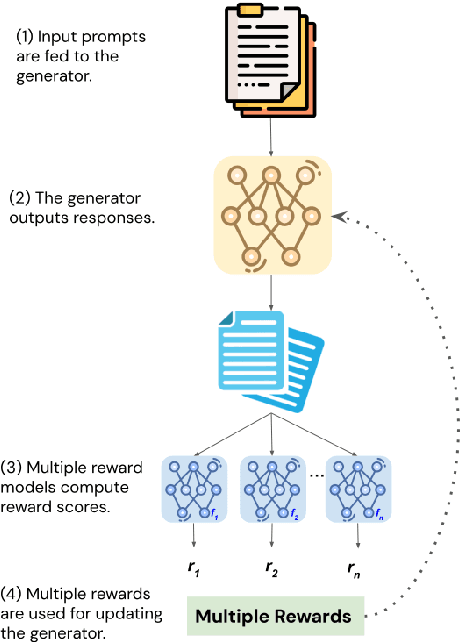
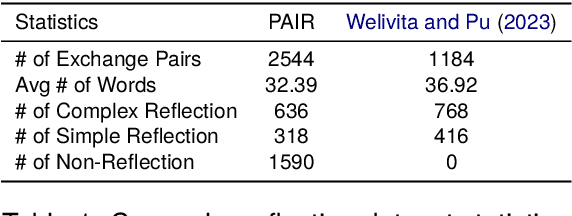
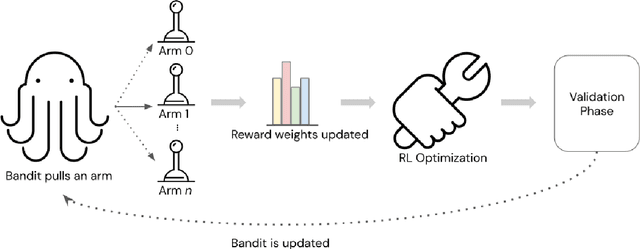

Abstract:In this paper, we study the problem of multi-reward reinforcement learning to jointly optimize for multiple text qualities for natural language generation. We focus on the task of counselor reflection generation, where we optimize the generators to simultaneously improve the fluency, coherence, and reflection quality of generated counselor responses. We introduce two novel bandit methods, DynaOpt and C-DynaOpt, which rely on the broad strategy of combining rewards into a single value and optimizing them simultaneously. Specifically, we employ non-contextual and contextual multi-arm bandits to dynamically adjust multiple reward weights during training. Through automatic and manual evaluations, we show that our proposed techniques, DynaOpt and C-DynaOpt, outperform existing naive and bandit baselines, showcasing their potential for enhancing language models.
VERVE: Template-based ReflectiVE Rewriting for MotiVational IntErviewing
Nov 14, 2023



Abstract:Reflective listening is a fundamental skill that counselors must acquire to achieve proficiency in motivational interviewing (MI). It involves responding in a manner that acknowledges and explores the meaning of what the client has expressed in the conversation. In this work, we introduce the task of counseling response rewriting, which transforms non-reflective statements into reflective responses. We introduce VERVE, a template-based rewriting system with paraphrase-augmented training and adaptive template updating. VERVE first creates a template by identifying and filtering out tokens that are not relevant to reflections and constructs a reflective response using the template. Paraphrase-augmented training allows the model to learn less-strict fillings of masked spans, and adaptive template updating helps discover effective templates for rewriting without significantly removing the original content. Using both automatic and human evaluations, we compare our method against text rewriting baselines and show that our framework is effective in turning non-reflective statements into more reflective responses while achieving a good content preservation-reflection style trade-off.
Exploring Self-Identified Counseling Expertise in Online Support Forums
Jun 24, 2021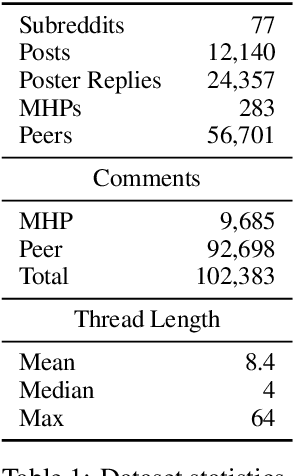

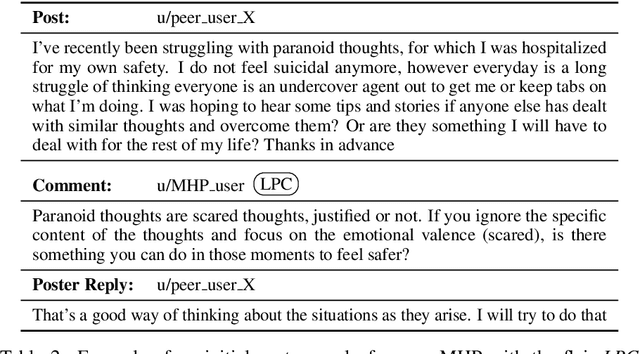

Abstract:A growing number of people engage in online health forums, making it important to understand the quality of the advice they receive. In this paper, we explore the role of expertise in responses provided to help-seeking posts regarding mental health. We study the differences between (1) interactions with peers; and (2) interactions with self-identified mental health professionals. First, we show that a classifier can distinguish between these two groups, indicating that their language use does in fact differ. To understand this difference, we perform several analyses addressing engagement aspects, including whether their comments engage the support-seeker further as well as linguistic aspects, such as dominant language and linguistic style matching. Our work contributes toward the developing efforts of understanding how health experts engage with health information- and support-seekers in social networks. More broadly, it is a step toward a deeper understanding of the styles of interactions that cultivate supportive engagement in online communities.
Expressive Interviewing: A Conversational System for Coping with COVID-19
Jul 07, 2020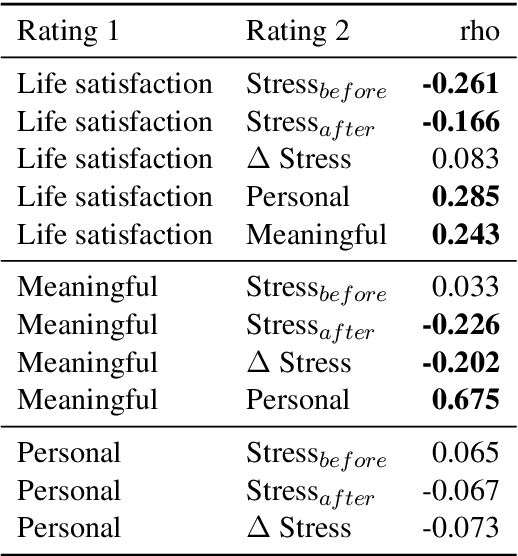
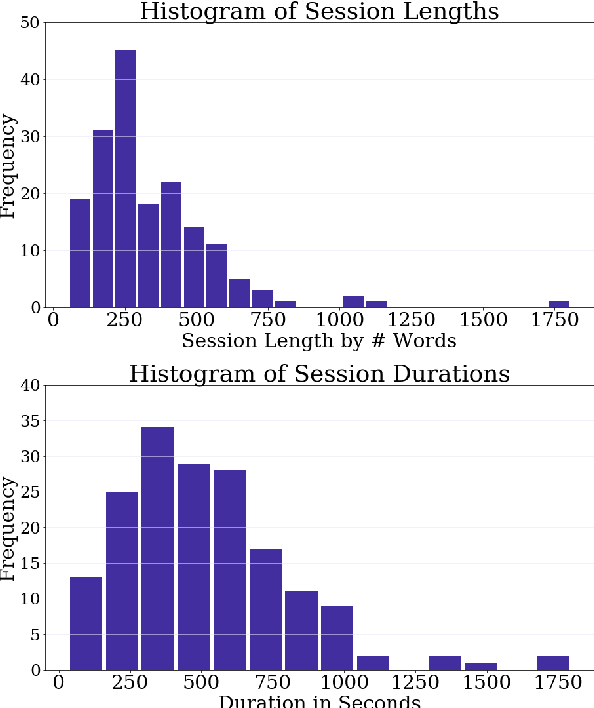
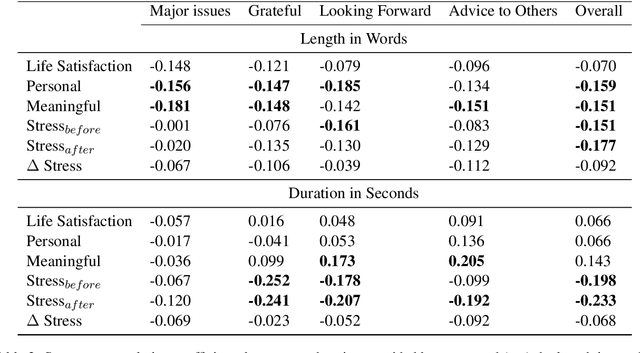
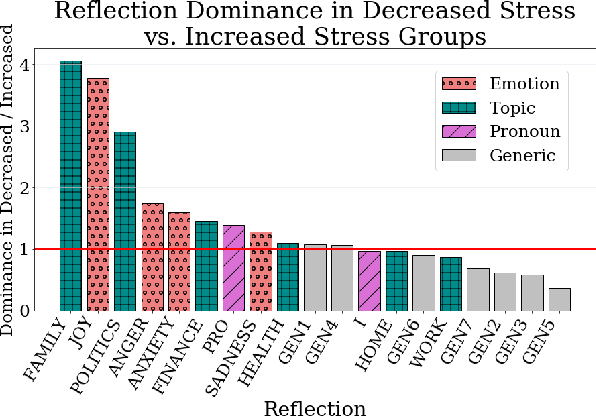
Abstract:The ongoing COVID-19 pandemic has raised concerns for many regarding personal and public health implications, financial security and economic stability. Alongside many other unprecedented challenges, there are increasing concerns over social isolation and mental health. We introduce \textit{Expressive Interviewing}--an interview-style conversational system that draws on ideas from motivational interviewing and expressive writing. Expressive Interviewing seeks to encourage users to express their thoughts and feelings through writing by asking them questions about how COVID-19 has impacted their lives. We present relevant aspects of the system's design and implementation as well as quantitative and qualitative analyses of user interactions with the system. In addition, we conduct a comparative evaluation with a general purpose dialogue system for mental health that shows our system potential in helping users to cope with COVID-19 issues.
 Add to Chrome
Add to Chrome Add to Firefox
Add to Firefox Add to Edge
Add to Edge